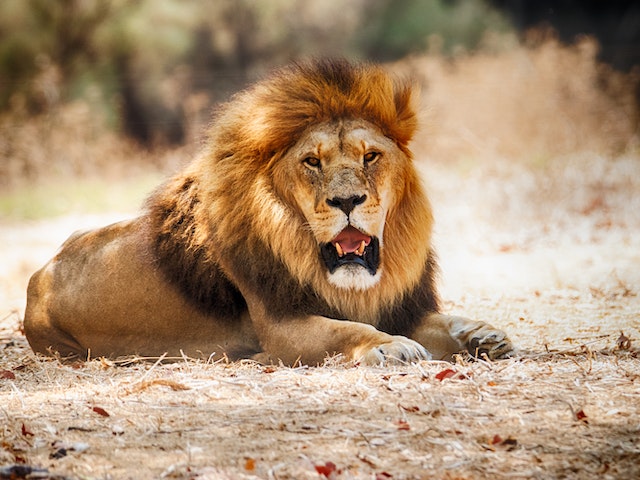
What is the difference between carnivores, herbivores, and omnivores? Amongst other things, they have differences in their teeth, mouths, eyes, saliva, intestines and their stomachs.
Herbivores obviously live off plants. They are known as primary consumers because they eat the energy that the plants have produced through photosynthesis and introduce it into the food chain. To be able to live off plants, herbivores have a number of adaptions. The first is their teeth. Herbivores have large flat teeth with ridges that are used for grinding up plants. The fibers in plants are very tough and herbivores grind them up as much as possible before they start to digest them. Their teeth grow constantly throughout their lives because they are worn down by the plants.
Herbivores also have different saliva to carnivores. They have enzymes in their saliva that start to break down the food while they are chewing. The fibers are very tough and cellulose is very difficult to break down. They chew their food for a long time, letting the saliva go to work before they swallow.
Herbivores have much longer intestines than carnivores. The intestine in a herbivore is usually ten to twelve times longer than its body. They need all of this length because it takes so long to break the cellulose down into its parts. They also spend nearly all of their day eating because they need a large amount of food to get enough energy.
Carnivores have sharp teeth for ripping up meat and they don’t have any enzymes in their saliva to digest the food before they swallow it. Their intestines are between three and six times the length of their bodies. Their intestines don’t need to be as long because it isn’t as difficult to get the energy out of meat and it doesn’t take as long. They have the bacteria needed to break down the proteins in the meat. They are also able to produce their own vitamin C. However, because they only eat meat, their livers are much larger than those of herbivores. It takes a lot of uric acid to break down the proteins in animal flesh into amino acids. This uric acid needs to be flushed out by the liver, which is why their livers are so big. They can flush out ten times more uric acid than a herbivore can. It is also worth remembering that carnivores eat all of the animal, not just the meat. They eat all of the organs as well, which gives them a lot of the vitamins and minerals they need.
Herbivores and carnivores also have differences in their eyes. Herbivores generally have eyes on the sides of their heads that allow them to keep a lookout for predators. The positioning of their eyes gives them an almost 360-degree field of view. They can see everything except for what is directly behind them. Carnivores usually have eyes in the front of their heads because they rely on distance vision when they hunt. When the eyes are pointing forward, the brain can compare the slight difference in what each eye sees and use that to judge distance.
Carnivores and herbivores also differ in their use of energy. Herbivores spend a lot of time standing around eating and only occasionally expending energy to run away from a predator. Carnivores have to hunt and they have to run fast to catch their prey. This burns a lot of energy and they might not always be successful. That means they spend as much time not moving as they can to preserve energy.
There are many other differences between herbivores and carnivores. So, what about omnivores? We are omnivores and we fall nicely in between herbivores and omnivores. We have some teeth that are good for ripping and some teeth that are good for grinding. Our saliva has some enzymes to aid with digestion, but not as many as a herbivore, Our intestines are longer than a carnivore’s, but not as long as a herbivore’s. We can get the amino acids out of the proteins in meat, but not as well as a carnivore and we can’t produce our own vitamins. We have to get those from plants, but we can’t get all of the energy out of plants, which makes it very difficult for us to live solely off plants. We need B12, which only comes from meat, yet we have sucrases, an enzyme that lets us digest fruit.
Why did we evolve to be omnivores? We probably started out as scavenger carnivores, but we evolved to be able to eat plants as well. The most likely reason is that the more different types of food you can eat, the more food you can find. Omnivores have the best of both worlds. And this is what I learned today.
Sources
https://www.ncbi.nlm.nih.gov/pmc/articles/PMC4866192/
https://letstalkscience.ca/educational-resources/backgrounders/how-animals-digest-their-food
https://kidskonnect.com/animals/herbivores-carnivores-and-omnivores/
